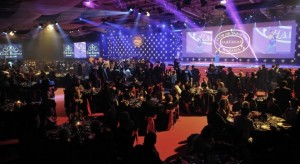 They have few reasons to envy of their capitalist counterparts. The differences between them are ones of rhetoric and philosophy. The anti-capitalist islanders having studied Marxist manuals and speak on behalf of the poor.
They have few reasons to envy of their capitalist counterparts. The differences between them are ones of rhetoric and philosophy. The anti-capitalist islanders having studied Marxist manuals and speak on behalf of the poor.
But many are living at full throttle. At the workplace they wear sweltering uniforms designed by some sadistic tailor from the former Soviet Union. Twenty-five years ago they used to get around in Russian-made Ladas with capitalist tires and stereo systems. They called attention to themselves.
The top officials were untouchable. Officers used to place their caps in the rear of their vehicles so that police would not stop them for traffic violations. Laws were for other people to obey.
The only ones who could dismiss them, punish them, jail them (or shoot them) were the Castros. They lived in the former residences of Havana’s upper and middle classes in the Siboney, Miramar, Nuevo Vedado, Fontanar or Casino Deportivo neighborhoods.
They had more than one car and houses with Ikea furniture, electric kitchens, “made in USA” refrigerators, Sony televisions, South Korean air conditioners and Philips audio equipment.
They enjoyed three succulent meals a day and once a week they read articles from the western press that had been condensed for the directors of the Department of Revolutionary Orientation or the Communist Party. For vacations they travelled to one of the USSR’s Baltic republics or strolled carefree through Prague’s Wenceslas Square. And they went to Varadero whenever they felt like it.
The drank Czech beer and Yankee whiskey. They smoked cigars for export and carried American dollars in their wallets back when doing so was forbidden. Ministers and military brass were fond of dressing up like Madrid’s posh elite or New York’s jet set, with Levi’s 501 jeans and polarized Ray-Ban sunglasses.
In the difficult years of the “Special Period,” while the masses whom they lauded suffered from hunger, became ill from malnutrition, put up with blackouts lasting twelve hours and got around on bicycles, the revolutionary upper class maintained its same lifestyle. They had electrical generators in their homes, celebrated with loud parties and never had to put up with the lousy food — ground beef from soy, meat paste and Cerelac — devised by Fidel Castro for the average Cuban.
In the 21st century they have become successful entrepreneurs. The various businesses established with capitalist partners as well as the “industry” which arose after the increase in remittances sent by Cubans living overseas nourish members of the armed forces and interior ministry.
An absurd captive market, which forces Cubans to pay for everything from a bottle of cooking oil to a ventilator in another currency, is managed by a holding company set up by the military.
Meanwhile, the number of maneuvers intended to counter a supposed Yankee invasion have diminished. Aging Russian armaments, built in the 1980s when the government was mobilizing the population for “imminent enemy aggression,” lie rusting in underground bunkers.
Today the new Creole upper class is betting on the world of business. It advises Venezuelan comrades and secures positions in European embassies. The old Russian Ladas are no longer fashionable. Now they show off with Audis and Hummers.
Cuban baseball bores them. They prefer to watch Big League games, championship football matches and NBA playoffs live on satellite. The like to play golf or go hunting in exclusive game reserves. They dine as though they lived in London or Paris. They have internet access at home and use Skype for video conferencing or for chatting with their children in Florida.
Offspring of the nouveau riche have studied or are studying at universities in the United States or Europe. Others, more in tune with the times than their fathers, prefer to live in exile.
At night this elite bourgeoisie dines at Havana’s finest restaurants and frequents its hottest nightclubs. They dress in designer clothes, perhaps made in dismal garment factories in Bangladesh. They sport French perfume and Swiss watches. By day they take part in revolutionary actions while wearing white guayaberas.
They demand productivity and sacrifice, speak of a prosperous and sustainable socialism, condemn Yankee imperialism and ask that the people work with them to end rampant corruption. This new Cuban upper class loves to foment revolution from the soap box.
Photo: Banquet and show from the XV Festival del Habano 2013, which took in more than a million dollars. These festivals has been taking place in the Cuban capital since 1994 and bring together hundreds of celebrities, specialists and cigar lovers from all over the world. Parents and children from communist military high society regularly attend these exclusive, opulent events. From Diario de Yucatán.
Iván García
16 June 2013
